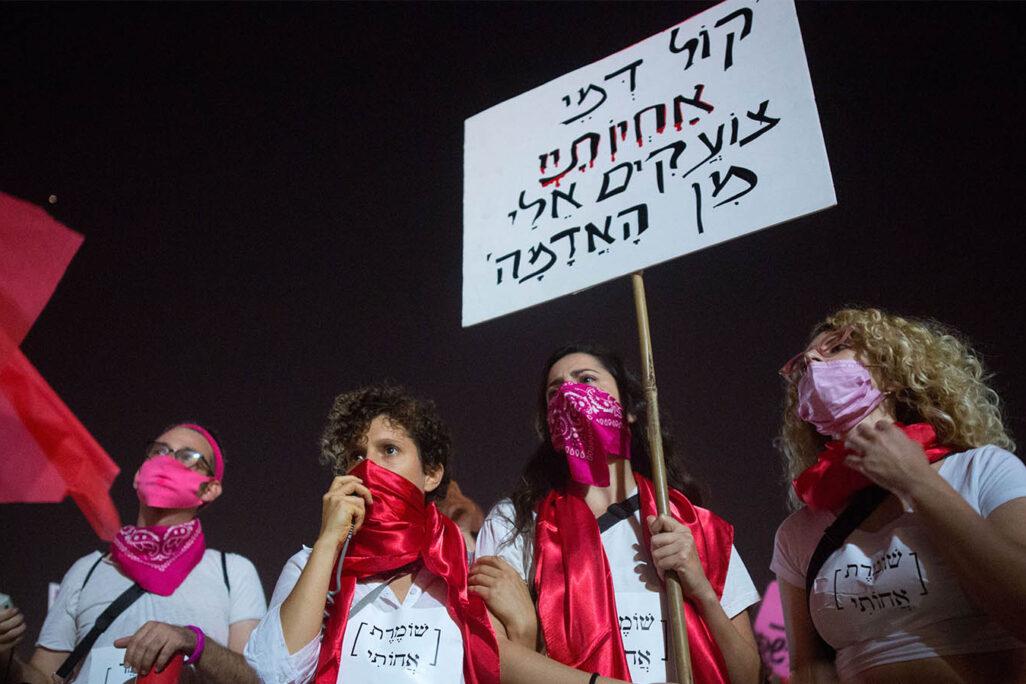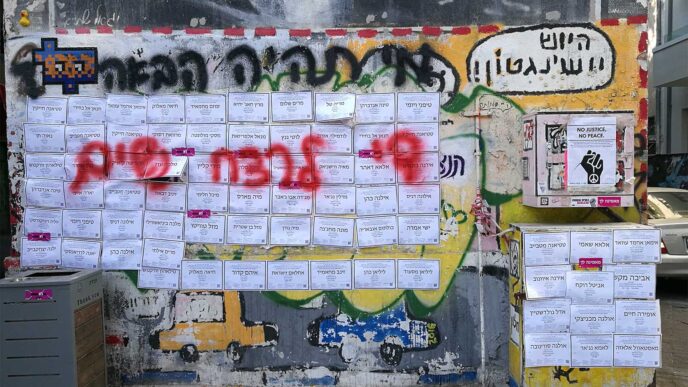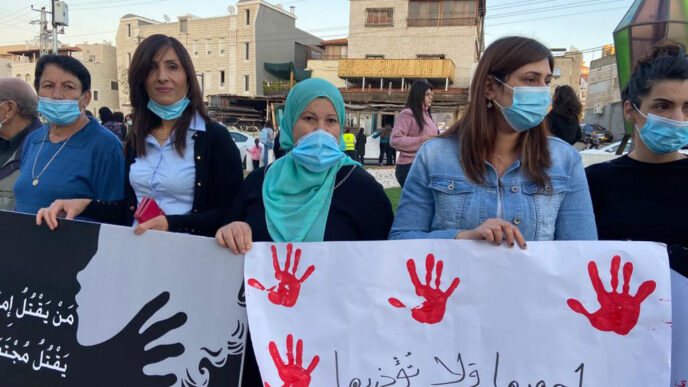
“Hannah, does this look clean to you?” Actress Dana Frider locks the door to her apartment and hears shouting coming from a neighbor’s home. “A piece of tuna looks clean to you?”
The short video concludes with a fraught look between Hannah, who leaves her apartment in a hurry, and Dana, who stands in the hallway, silently considering what to do next. Then the slogan “your sister’s keeper” appears on screen, alongside a domestic violence hotline number.

The video is one of several that Na’amat, the largest women’s movement in Israel which is affiliated with the Histadrut, released in the lead up to the International Day for the Prevention of Violence against Women on Wednesday. Each video features a celebrity deciding what to do when confronted with domestic violence, and a message encouraging the public to turn to Na’amat’s hotline.
The problem of domestic violence, especially against women, is not new in Israel. Since 2004, 180 women have been murdered by their spouses. But during coronavirus lockdowns, the number of domestic violence reports has skyrocketed.
According to data published Monday by the Association of Aid Centers, since the outbreak of the coronavirus pandemic, there has been a 24 percent increase in calls to assistance centers compared to 2019.
Over the summer, the increase in violence and a high-profile gang rape case prompted widespreads protests.
“We will continue to see the consequences of the current crisis for months and even years,” said Orit Soliciano, CEO of the Aid Centers Association.

Most of the increase, since the beginning of the crisis, was recorded during the first wave of coronavirus infections between April and June, when the aid centers received 16,515 inquiries, 37 percent more than in the corresponding period in 2019. The sharpest increase, 43 percent, was recorded in June, when the lockdown ended, making it easier to contact the centers.
Especially frustrating to longtime activists is the fact that millions of shekels of federal funding that the Knesset promised to allocate to violence prevention programs were never actually included in final budgets.
In 2017, the government adopted a plan for violence prevention that was estimated at 50 million shekels per year for five years. But that money was only actually included in the 2018 budget, not in any other budget passed since.
“There is no proper budget for the shelters,” said Gali Etzion, Na’amat’s legal advisor. “There’s a built-in deficit. Organizations are forced to raise funds themselves.”
“Once in a while, someone declares something, but in practice nothing happens," said Bracha Barad, director of Kulan, an organization that promotes feminism in Israel. “For several years now, people have been saying that funds will be transferred, but it’s not happening.”
"The coronavirus has greatly intensified the issue, but it was going on before and it will remain after,” said Etzion. “We need to talk about more than just the extreme situations that put women in shelters. The whole public focus is on shelters, on those murdered. But it needs to be addressed beforehand. Let’s prevent that outcome before it happens.”
At a meeting of the Knesset Finance Committee last week, MKs from many parties voiced strong support for increased funding.
"Domestic violence is a sick evil in the Israeli reality. You do not have to be a rocket scientist to understand that when people are locked in the house, when there is financial strain, when the children do not go to school, the pressure rises,” said MK Oded Forer, of Yisrael Beiteinu.
MK Iman Khatib Yassin, from the Joint Arab List, noted the particularly acute need for funding among Arab Israelis. “Of the percentage of murders in the country, about 70 percent are Arab women,” she said. “It's time for us to take action. There is an economic crisis. Arab society is dealing with poverty and stress all the time.”

“There is no better time than now to fulfill this promise. This money should be transferred at the end of the hearing,” MK Tamar Zandberg of Meretz said.
But some activists, pessimistic about the transfer of additional funds, noted that many changes can be made without money.
“There are injustices that can be corrected without transferring a shekel," said Barad.
“Today, violent men can be released from prison without undergoing a rehabilitation program,” she explains. “There are rehabilitation and prevention programs that exist, but violent offenders are released without having to enter them.”
Michal S. Zadok, director general of the Center for Citizen’s Empowerment, an organization which monitors implementation of government policy agrees. “There are things the Ministry of Welfare can do now that are not related to money, like setting measurable goals. Where do we want to be in five years? Creating a plan for measurement and evaluation doesn’t require a lot of money,” she said.
She added that currently, there are many unfilled positions for social workers. “Let's put our weight behind that,” she said. “These are not things that require money. They require management.”
“The neverending conversation about money serves the people who aren’t really doing the work,” she adds. “50 million shekels is nothing in government terms.”






